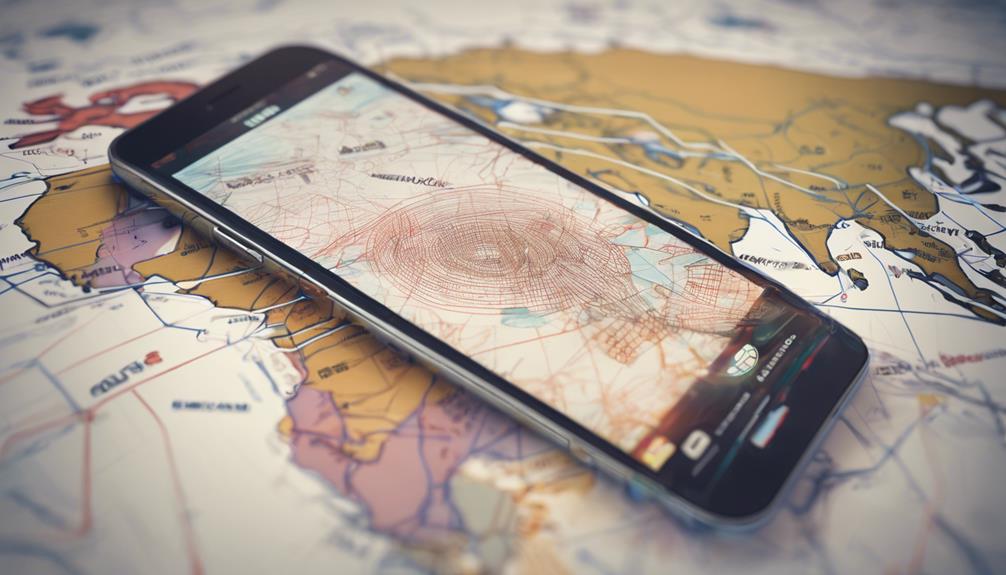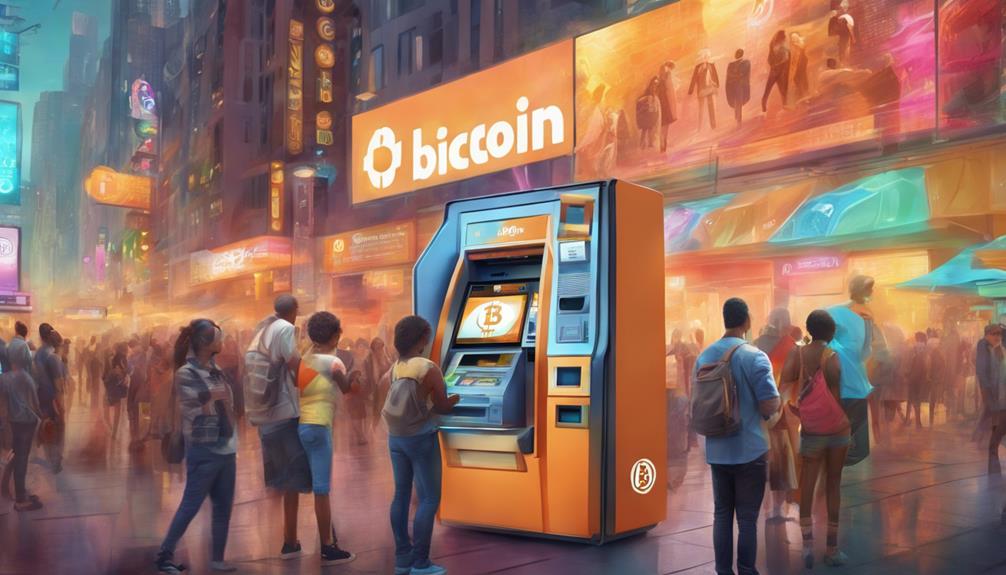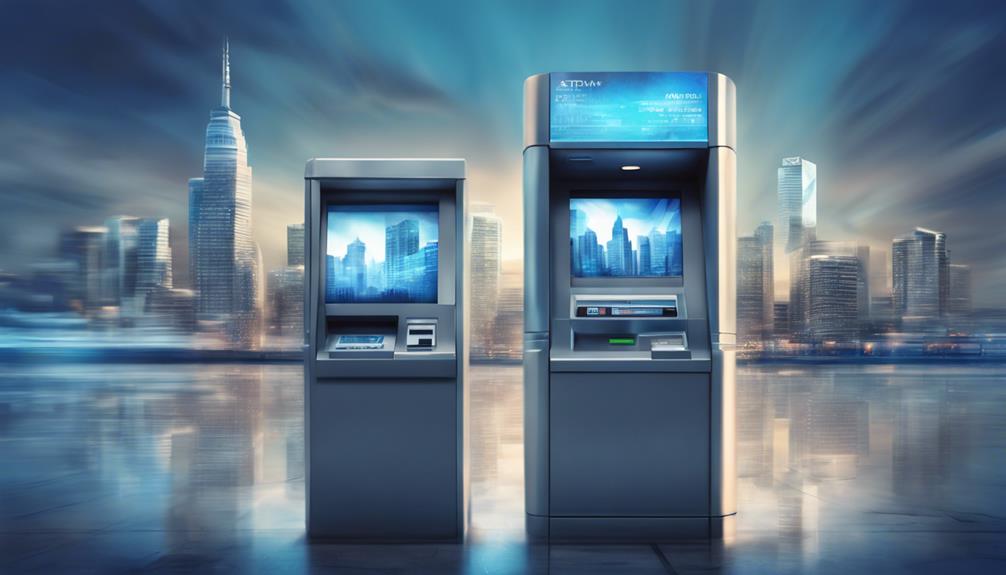Where Is Cryptocurrency Located

You've probably heard quite a bit about cryptocurrency and might even own some, but have you ever wondered exactly where it 'lives'?
Despite its material elusiveness, every unit of digital currency exists on a blockchain, a distributed ledger that spans the globe, upheld by a network of nodes.
Each transaction you make resides on this immensely secure, anonymous database, where your ownership is staked by cryptographic keys within your digital wallet.
Now, consider the implications of this digital existence, particularly concerning security and accessibility.
What do you think happens when disputes about ownership arise, or when regulations tighten?
Your thoughts on these matters could lead to intriguing discussions.
Understanding Cryptocurrency Storage

To securely store your cryptocurrency, you need a crypto wallet, either as a physical device or online software, to manage your private keys.
These wallets, whether hardware or software, protect your access to the decentralized world of digital currency. By employing cryptographic techniques, these wallets ensure that your private keys—a critical piece of security—are never exposed to potential attackers.
Understanding the dynamics between private and public keys is crucial. Private keys allow you to execute transactions on the public ledger, facilitating the safe transfer or spend of your cryptocurrency.
On the other hand, public keys enable you to receive transactions, acting as your publicly visible address on the ledger.
For those who prioritize security over everything, hardware wallets offer a robust solution. These devices store your private keys offline, shielding them from online vulnerabilities such as hacking or phishing attacks prevalent on mobile devices.
It's about finding a balance in storage options that suit your lifestyle while ensuring the utmost security.
The Role of Blockchain
The Role of Blockchain
Blockchain serves as the foundational technology, ensuring all cryptocurrency transactions are securely recorded and easily verifiable.
Using blockchain technology, you're part of a vast, decentralized system where every digital ledger transaction is copied to every node in the network. It's akin to having a ledger called a 'distributed ledger', which is just that—a ledger maintained simultaneously across a multitude of places.
Now think of this: each copy of the blockchain acts as a public ledger. That means every user's copy updates with every new transaction. This measure ensures transparency and fosters trust among users, as everyone has the same data to verify transactions.
Each block added holds a series of cryptocurrency transactions, making the entire database not only comprehensive but also highly secure due to its collective upkeep.
Moreover, everyone helps to keep the system running smoothly. You've got a stake in maintaining the security and accuracy of this vast, shared financial diary.
You're more than just a passive participant; you're actively ensuring the ledger's accuracy and resilience. As part of this interconnected web, you help cement the backbone that cryptocurrencies rely on, making each transaction traceable and tough to tamper with.
Worldwide Access and Regulations

Cryptocurrencies offer global access, but regulations vary significantly from one country to another.
You're part of a diverse community navigating these decentralized networks, where each participant experiences different interactions with financial institutions and government bodies.
This landscape makes it vital for you to understand how worldwide access impacts the way you, and others, engage with the cryptocurrency market.
Different countries have their own rules about virtual currencies.
Japan, for instance, recognizes Bitcoin and others as legal tender, enhancing your sense of security in these markets.
In contrast, some nations impose strict regulations that might limit your ability to use crypto exchanges effectively or increase your confidence in these digital assets.
Moreover, market capitalization in these digital assets reflects the global interest and economic weight they carry.
Peer-to-Peer Electronic Cash systems allow you to directly transact with others worldwide, bypassing traditional gatekeepers, which empowers you to make independent financial choices.
However, global regulations can affect this freedom, offering you both opportunities and challenges.
Cryptocurrency Wallet Types
Understanding the different types of cryptocurrency wallets is crucial for managing your digital assets effectively.
Essentially, a cryptocurrency wallet is your personal interface with the blockchain, allowing you to send and receive different cryptocurrencies.
This includes Secure Digital Wallets (e.g., Bitcoin.py) and Physical Hardware Wallets (e.g., Ledger).
Examples of cryptocurrencies that can be managed through these wallets are Bitcoin (BTC) and Ethereum (ETH).
Security Measures for Crypto

To safeguard your cryptocurrency investments, it's essential to implement robust security measures. These measures ensure that your digital assets remain secure.
Firstly, consider using both hot wallets for everyday transactions and cold storage solutions, including hardware wallets, to shield your private keys from online threats. This fortifies not only the security of your assets but also your peace of mind.
Next, always use strong, unique passwords for your wallets and exchanges, and enable two-factor authentication (2FA). This adds a vital layer of security, making it more difficult for unauthorized users to access your precious assets.
Remember, keeping your software and wallets updated is your first line of defense against new vulnerabilities. More updates often include security patches and improvements for protection from known threats.
Moreover, leverage advanced features offered by your wallet and exchange providers, such as multi-signature wallets and whitelisting of addresses. These reinforcements are designed to keep you and your community secure.
Lastly, don't overlook mobile security. Encrypt your devices and manage access carefully. Each step you takes not only protects your wallet but also ensures you remain a trusted and integral member of the cryptocurrency community.
Frequently Asked Questions
Where Is Cryptocurrency Stored?
You store your cryptocurrency in digital wallets, which can either be online, on your computer, or on external hardware, such as hardware wallets, which are separate devices that store your crypto keys, or paper wallets, which involve writing your private key details on paper for cold storage. It's all about keeping your virtual coins safe and secure by managing your private keys and public addresses effectively to prevent unauthorized access.
Is Cryptocurrency Legal in the Usa?
Yes, cryptocurrency is legal in the USA, but regulations vary by state and the type of crypto. You'll need to navigate specific SEC (Securities and Exchange Commission), IRS (Internal Revenue Service), FinCEN (Financial Crimes Enforcement Network), and CFTC (Commodity Futures Trading Commission) guidelines depending on your activities.
Is Crypto Currency Safe?
You're right to wonder if cryptocurrency is safe. While it offers security through blockchain technology, which involves a distributed ledger that is hard to tamper with, it's not immune to hacks. Additionally, it lacks regulatory protection compared to traditional financial products, such as stocks and bonds. In fact, several high-profile hacks, including the $534 million Coincheck hack and the $195 million BitGrail hack in 2018, highlight the vulnerabilities of cryptocurrency systems. Therefore, it is crucial to follow best practices, such as using strong passwords and enabling two-factor authentication to protect your digital assets. It is also important to research and choose reliable exchanges, understand the risks involved, and diversify your investments to minimize potential losses.
Is Crypto Real Money?
Yes, you might consider cryptocurrency as real money. It's used for transactions online, acting as a digital form of exchange, just like any traditional currency, though it's stored in digital wallets and isn't backed by a central authority like traditional fiat currency is.
Conclusion
Cryptocurrency is located within a decentralized blockchain network, which spans globally.
Regardless of your geographical location, you can access your crypto through various types of digital wallets.
Always choose a wallet that suits your needs and ensure it's equipped with robust security measures to protect your digital assets.
Remember, the real control lies in the security of your private keys, so keep them safe and manage them wisely.





